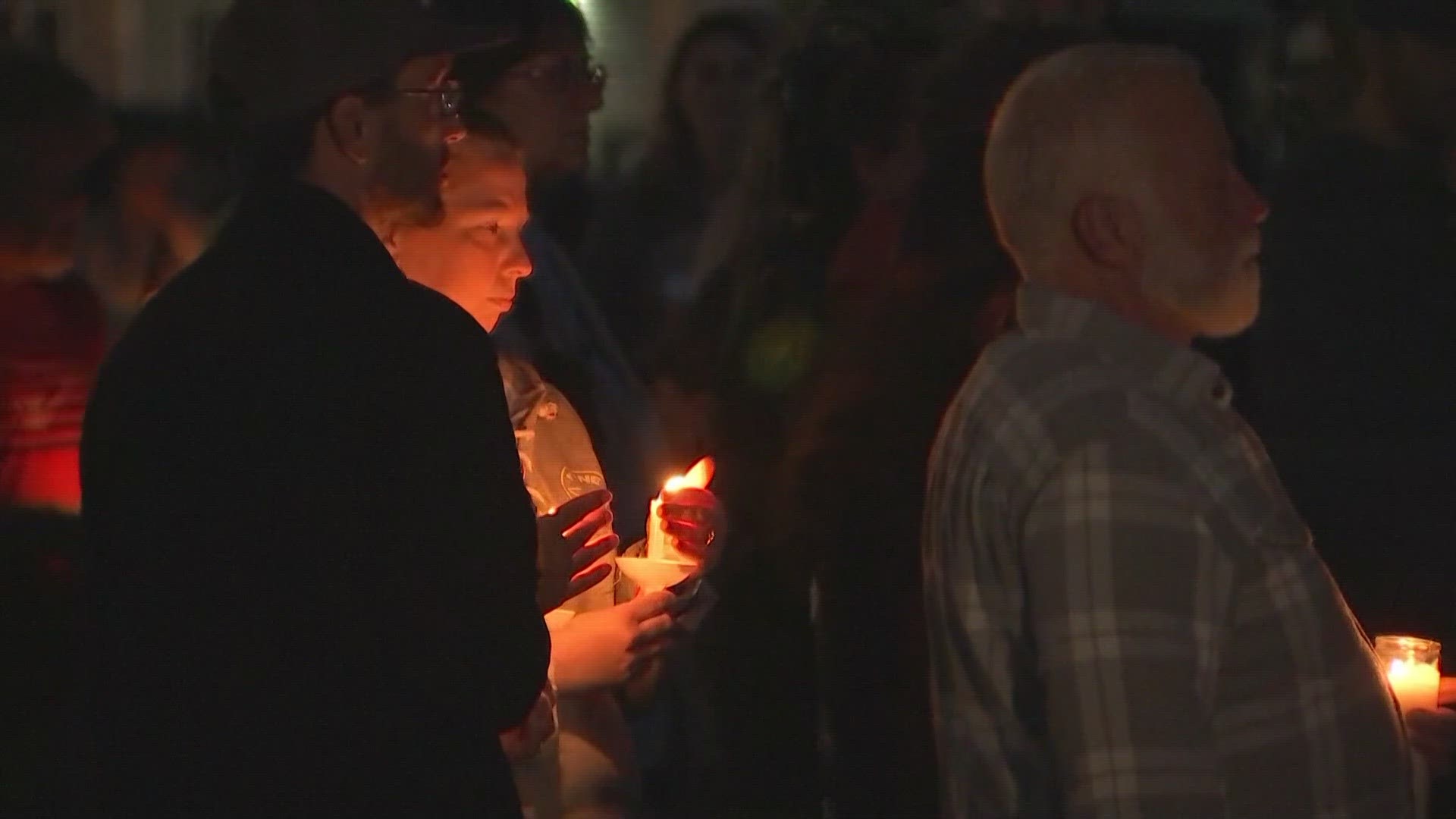LONE TREE, Colo. — “It really is a lifelong thing you learn to deal with," said Heather Martin, co-founder of the Rebels Project.
It's been nearly two weeks since a mass shooting in Lewiston, Maine killed 18, injuring more than a dozen others.
Now, mass shooting survivors here in Colorado hope to help survivors and families deal with the grief and trauma in the months and years down the road, hoping to help them find a path forward to heal.
"It truly does get better. And there are hard times and sometimes things really are terrible and dark but it truly, it does get better," Martin said.
As families and loved ones in Lewiston, Maine process the horror of what happened Oct. 25, few people understand exactly what they've gone through, but one person who understands is Martin.
"Right now, I would just say, it is overwhelming and it is going to be a rollercoaster of emotions," Martin said.
As a survivor of the Columbine school shooting in 1999, Martin knows all too well the trauma families in Maine are experiencing. It's why she and other Columbine alumni started a nonprofit to help victims of mass shootings.
"We formed the Rebels Project in 2012 after the shooting at the Aurora theater because in 1999, after the shooting at Columbine, we really needed people who got it and understood what we had been through because we didn't feel comfortable talking to people who didn't because, they don't know," Martin said.
Soon after a mass shooting, Martin said the Rebels Project will reach out. And, they'll keep reaching out, checking in with communities long after many others have forgotten the news headlines.
"Over the years, we have learned that it's really, really helpful to connect with people who get it and you need to be there for the long run," Martin said. "And it's not always in the immediate aftermath that people want to talk."
She said initially, she thought she'd be able to move past what happened at Columbine in a matter of months. Now, more than 20 years later she knows she's still processing what happened.
"It took me 10 years to even call myself a survivor. I was physically uninjured I didn’t feel like I deserved the title or could even say that I was, I thought that was for people who were physically injured. And it really changed a lot when I was able to sort of own that title and take on that piece of my identity, that I did survive it," Martin said. “I think the things I wanted to hear the most in the days, weeks, and initial months following the shooting at Columbine High School was that it is not about who suffered more or who struggled more or who saw what or who experienced what, like really your story is valid. And what you experienced and the trauma, it is valid."
She recognized that this was her new normal and she would continue to process her trauma and find ways to cope and heal.
"You can know it in your head but once you finally really get it, like I am not the same person and I never will be, that's when you can kind of really start taking those baby steps forward," Martin said.
Through the Rebels Project, the team helps connect survivors of mass shootings with fellow survivors around the country offering a network of help, resources and information by and for people who have been through it themselves.
They'll share their stories, talk about what coping mechanisms work well, what triggers they experience, Martin said. And they're able to be there for these survivors in the months, years, even decades down the road, working past the trauma and challenges together every step of the way.
“It is an incredible realization to have and to know that it does get better and yes, things have changed and yes, you’ve changed. This is your new normal and it can be great,” Martin said. "Hearing how grateful people are to have a space and to be able to connect with people. And they say similarly, as awful as it is that this community exists, they're so grateful to have it."
As these mass shootings continue, Martin said this community they've built is needed more than ever.
"It’s really the survivors that do the work and they’re so willing to help each other and it’s so beautiful to be a part of and to witness," Martin said. "As a nonprofit, we would love to go out of business tomorrow. But if Columbine is any indicator, we'll still be needed 25 years from the shooting in Maine."
Martin said for any mass shooting survivor, the trauma of what happened isn't going away, but she stressed it can get better. For survivors, she said finding a trauma-trained therapist when you're ready to talk can help process what you've gone through.
For those with loved ones who've survived a shooting, she stressed not to minimize their experience. Instead, try to offer them support.
“Mainly what I recommend most for people whose loved ones experienced the event is knowing, it’s not going to just go away. And it takes a while to process. And yes, that’s different for everyone," Martin said. “Therapy is wonderful for many people. Everyone’s journey is different and every therapy looks different.”
SUGGESTED VIDEOS: Latest from 9NEWS

